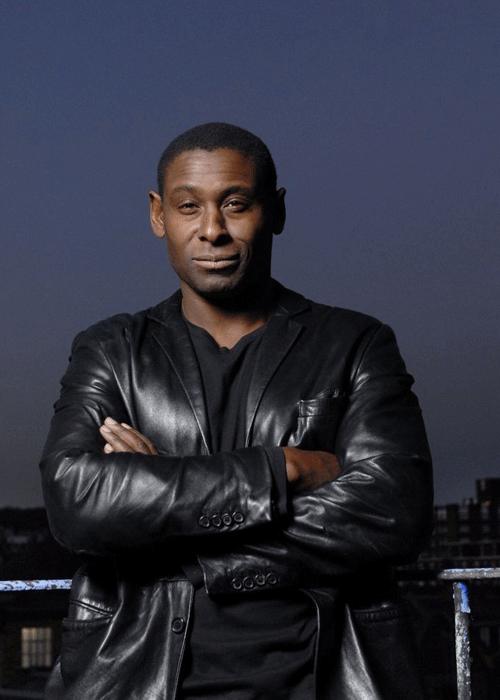Passed/Failed: An education in the life of David Harewood, actor
'I was the classroom clown'

Your support helps us to tell the story
From reproductive rights to climate change to Big Tech, The Independent is on the ground when the story is developing. Whether it's investigating the financials of Elon Musk's pro-Trump PAC or producing our latest documentary, 'The A Word', which shines a light on the American women fighting for reproductive rights, we know how important it is to parse out the facts from the messaging.
At such a critical moment in US history, we need reporters on the ground. Your donation allows us to keep sending journalists to speak to both sides of the story.
The Independent is trusted by Americans across the entire political spectrum. And unlike many other quality news outlets, we choose not to lock Americans out of our reporting and analysis with paywalls. We believe quality journalism should be available to everyone, paid for by those who can afford it.
Your support makes all the difference.David Harewood, 42, appears in The Last Enemy, the BBC1 surveillance thriller series starting on Sunday, and in Gunrush on ITV in March. His films include Blood Diamond and Separate Lies; and at the National Theatre he played Lord Asriel in Philip Pullman's His Dark Materials, and Hotspur in Henry IV Part II.
I'm very fortunate. I loved school and, when I went there, race, gangs and violence were not issues. There was a feeling, gone now, that you had to be presentable. If you hadn't combed your hair, older black ladies – complete strangers – would come up to you in the street and pull out a comb and straighten your tie.
St Benedict's Primary in Small Heath, Birmingham, was a lovely little place, although, actually, one of my earliest memories is of playing aeroplanes and bumping into the school hard man, who tried to beat me up. I'd never had a fight before, but I remember laying him out flat and I never had any more trouble. I was always the classroom clown and the teachers allowed me a certain latitude. The assemblies were good and the headmaster used to tell little stories; I loved the idea of communal storytelling.
On my first day at Washwood Heath, a mixed comprehensive, a boy said to me, "Three thirty – outside!" Because I turned up, I got his respect and there was no fight. All the tougher boys became my friends and we were the nucleus of the school teams: basketball, cricket, football, rugby and athletics. It was a wonderful school, very creative, with a reputation for sport and drama. Every class had to give an assembly and that's when I started doing my acting stuff.
I was in a number of school plays, one in particular, when I was 13 or 14, entitled Illusions. It was put together by one of the teachers, and was about famous historical figures. I had to do the Martin Luther King "I have a dream" speech, and some black women in the audience were clapping and crying and whooping. This was probably the first time that I was aware of the power of the theatre. (Two years after drama school, I had a nervous breakdown: I heard voices, and the voice I heard in my head was Martin Luther King's.)
I did my GCSEs and stayed on to do A-levels: English, history and social studies. We studied Othello, which I have played twice, the second time at the National. We went to see King Lear; we were six of the baddest, a bit drunk from a couple of glasses of cider – and we were crying our eyes out at the end. Towards the end of my time at school, two of the teachers, Mr Reader and Miss Woods, said to me, "What are you going to do when you leave? We think you should be an actor". A light bulb went on in my head.
It was a complete fluke that I got into Rada. I had applied to several other drama schools and got into one of them. It wasn't a very good one, but I wrote to the others cancelling my application. Then I got a phone call from Rada saying, "Why didn't you turn up for the audition? We've had a cancellation for Friday". I realised that my letter had never arrived. I learnt a speech and went to the audition.
On my first day as a student, there was a gasp when I said I'd never heard of Brecht, Molière or Dostoevsky – books and music in our house were Caribbean. I had a ball at Rada. I played Lear at the beginning of my second year, and really grew up during the rehearsals.
Colour wasn't an issue: one week I was a Russian character in Chekhov, next I was in Ibsen. I suddenly became aware of my colour when I left Rada. We're more colour-blind now, but back then, all the reviews were about "black actor David Harewood".
Join our commenting forum
Join thought-provoking conversations, follow other Independent readers and see their replies
Comments